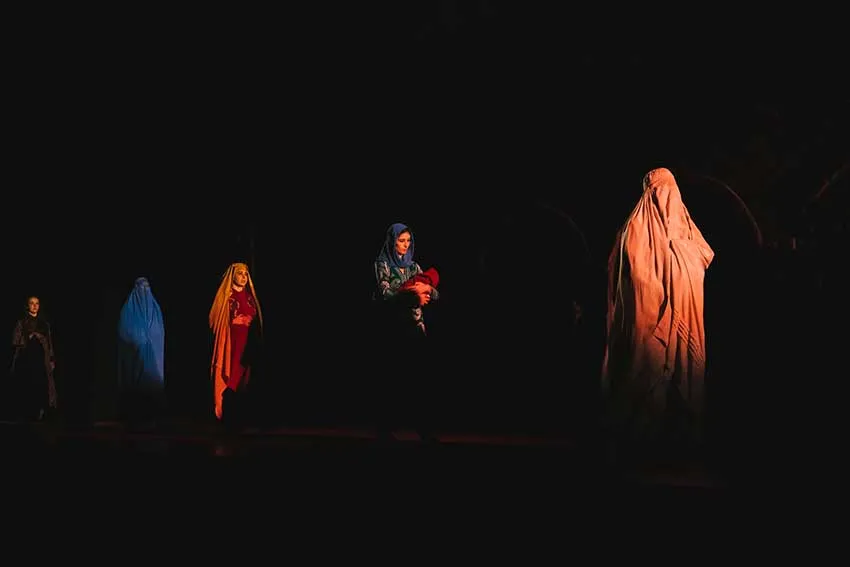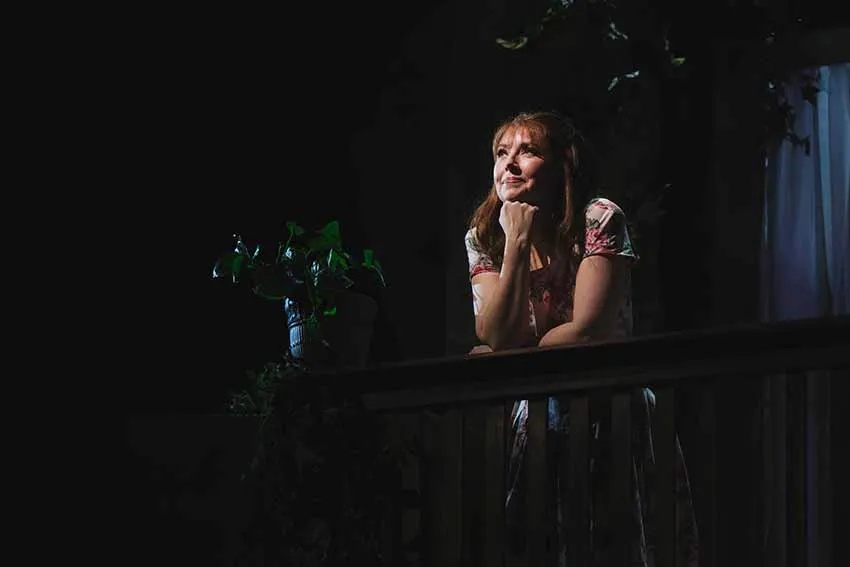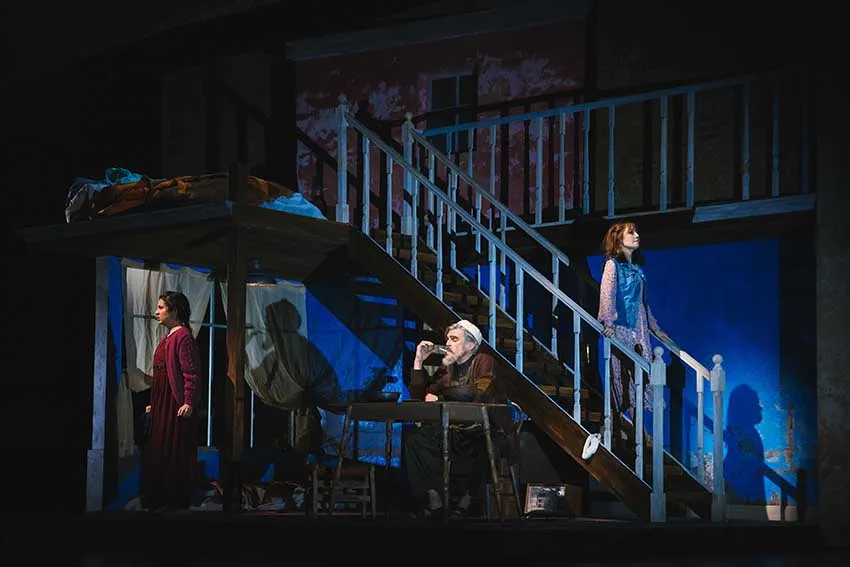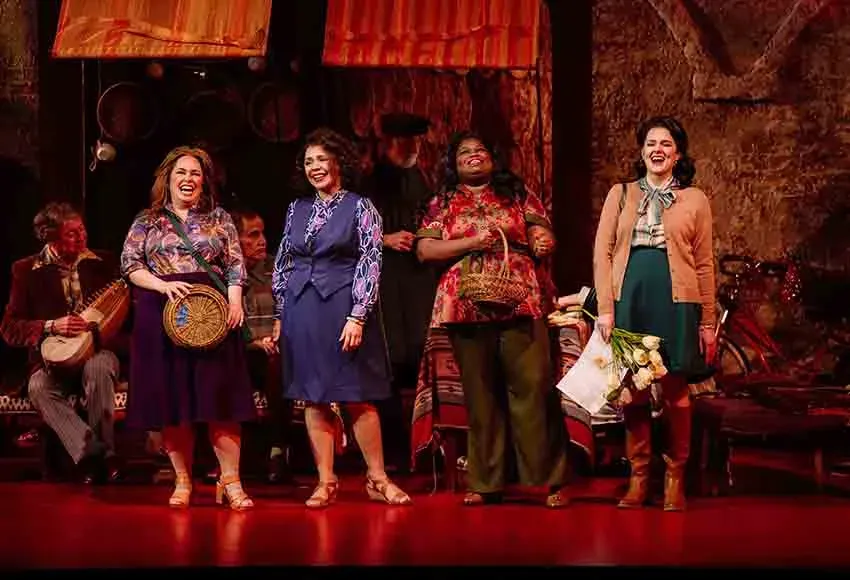A THOUSAND SPLENDID SUNS
Music by Sheila Silver
Libretto by Stephen Kitsakos, based on the novel by Khaled Hosseini
McCaw Hall
Opening weekend, February 25 and 26 (onstage through March 11)
How often do you get the chance to attend, right here in Seattle, the world premiere of a glorious new opera with a ravishing score, gorgeous production, and gripping drama about the plight of Afghan women? Once in a lifetime!
And how often are the composer, librettist, and famous novelist present to celebrate their brilliant collaboration? Not often.
But Seattle opera lovers – and those from around the country and the world – were on hand to witness the world premiere of A Thousand Splendid Suns, a brilliant and moving new work by composer Sheila Silver, librettist Stephen Kitsakos, and novelist Khaled Hosseini (whose book served as inspiration).

This heart-wrenching opera takes place in Herat and Kabul, Afghanistan, and tells the three-generation tale of women negotiating the restrictions on life under Taliban rule, when women were not permitted education or work outside of the home. With direction by Afghanistan's premier female filmmaker, Roya Sadat, and a cast made up primarily of women, this new opera not only exposes the dreadful dilemma of women and girls in a misogynistic culture but also demonstrates how men are diminished by such extremes.
The story, for those unfamiliar with Hosseini's novel, is an account of women victimized by forced marriage and lack of independence and education. Their job is to give their husbands sons. If they fail, they are set aside for a younger wife. The main character, Mariam, is born out of wedlock and loses her mother to suicide. Instead of sending her to school, as Mariam hopes, her father arranges a forced marriage with Rasheed. When she fails to produce a son, Rasheed marries the young Laila, whose Romeo-and-Juliet story with her lover Tariq ends with her having a child that Rasheed believes to be his. How the two wives (more like surrogate mother and daughter) form a sacrificial alliance to save Laila and Tariq's future is the redemptive climax of A Thousand Splendid Suns.

Karin Mushegain sang the main character, Mariam, in a beautiful mezzo-soprano, brilliantly performing the transition from a hopeful young girl to the embittered, abused wife of Rasheed, who represents the misogynist Taliban culture. Rasheed is a thankless role, performed with brave conviction by baritone John Moore. Laila (soprano Maureen McKay) and Tariq (tenor Rafael Moras) are the hopeful young lovers whose efforts to escape their fate are at the heart of the drama. McKay has already performed at Seattle Opera to great acclaim, while Moras is a Seattle Opera debutant; both sang and acted with skill and conviction. The singers' arias and duets are based on specific ragas (collections of pitches used in Hindustani music), which Western listeners may not recognize but nonetheless contribute to the authenticity of the score.
Laila and Tariq's love duet, as well as the "mother-daughter" duet between Mariam and Laila, were so moving on opening night that the audience twice interrupted the singing with applause. These lush harmonies and lovely melodies are among the highlights of the opera, providing two moments of respite from the heaviness of the rest of the drama. The ending, which we won't reveal here, elevated this difficult story to a degree of hopefulness that allowed the audience to leave with admiration and feelings of support for Afghanistan and its beleaguered people.
Seattle-born composer Silver's music is sumptuous and colorful, skillfully combining Western idioms with South Asian forms. The superb orchestra, composed of members of the Seattle Symphony, was conducted by Viswa Subbaraman, whose knowledge of South Asian music and experience directing modern operas served the orchestra and singers well.
Kitsakos' spare, poetic libretto left plenty of room for orchestral interludes. Whenever the tabla hand drum enters – with its dangerous, percussive tick-tick-tick – we feel the characters' fear rise in our own hearts. The haunting sound of the bamboo bansuri flute creates a dreamy atmosphere of love and hopefulness. Silver's music is tonal and melodic, but with complex rhythms and unresolved chords that create dramatic suspense. It grabs the listener and doesn't let go. Not since Wagner has the orchestra been so central to the drama of an opera.
Likewise, Sadat's staging transports the audience to a mud hut surrounded by minarets; then to urban homes in Kabul, using an abstract background of mountains and clouds; then to a dark bus station controlled by the Taliban; and finally to a prison in a castle. Her subtle design, aided by four stalwart stagehands who rotate set designer Misha Kachman's revolving centerpiece, create a substantially authentic world for the drama to unfold in.

Background
How did Seattle Opera bring this wonderful new work into existence? It started in 2012, when Silver obtained permission from Hosseini to make his best-seller A Thousand Splendid Suns into an opera. She invited her long-term collaborator Kitsakos to write the libretto, and then spent time in India studying Hindustani music (the classical music of northern India, Pakistan, and Afghanistan).
She and Kitsakos then wrote and workshopped the opera with the help of cultural consultant Humaira Ghilzai, and in 2018 received a commission from Aidan Lang, then general director of Seattle Opera. When Christina Scheppelmann became general director in 2019, she engaged Subbaraman as conductor and Sadat as stage director.
During the period when Hosseini published his novel and Silver and Kitsakos wrote the opera, the oppression of the female characters was seen as something from history. Women in Afghanistan had made great strides since the defeat of the Taliban. All of that changed in 2021.
On the very day when Sadat arrived in Seattle to attend the first production meeting for A Thousand Splendid Suns, the Taliban recaptured power in Afghanistan. In her program notes, Sadat writes that "in the blink of an eye," between Kabul and Seattle, she lost her homeland. The joy she had anticipated in directing this opera was transformed into a feeling of responsibility to portray the enormous courage and resilience of the women of Afghanistan.
That feeling – and the years of work and devotion to the opera by those who created it – have certainly paid off. It is difficult to think of a way in which this opera and this production could have been improved.
We congratulate Seattle Opera for bringing this beautiful and important work into existence, and encourage readers to attend this wonderful world premiere. Many of you will have read Hosseini's novel and are aware of the difficult, painful material it contains about the oppression of women and the damage patriarchy does to men and boys. It's important for those of us who are living with and working on LGBTQI+ issues to be reminded of how far other cultures may be from recognizing basic human rights.
Be prepared to take time to absorb this great work and to recover. The pleasure will be worth the pain.
For more information and to order tickets, go to https://www.seattleopera.org/.


